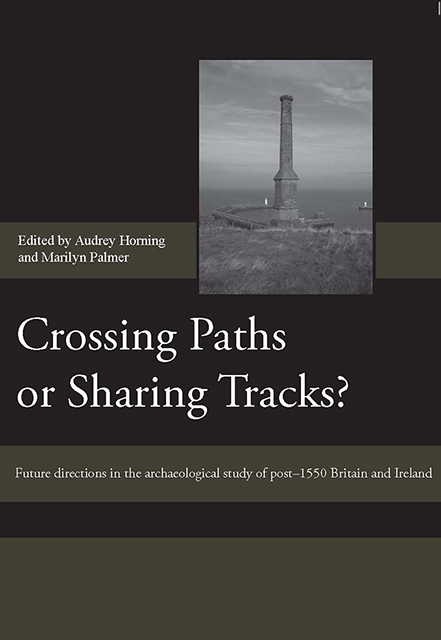 Crossing Paths or Sharing Tracks?
Crossing Paths or Sharing Tracks? Post-Medieval Archaeology: A Personal Perspective
Published online by Cambridge University Press: 07 March 2023
Summary
Subject definition within any discipline cannot escape the everyday structures and operation of power that exist within that profession. I have therefore set out to express my personal, and undoubtedly biased thoughts, on post-medieval archaeology withno expectation they will be shared. This chapter discusses the definition of the subject and some central issues for the present and future. The ill-defined and fragmented discipline that exists in Britain can at times be exasperating. However, it also reflects a long historical tradition of forming clubs and societies that serves as an important safeguard of intellectual freedom, providing niches for the idiosyncratic and sheer bloody-minded.
INTRODUCTION
Defining one's subject or discipline is itself an act of power. Archaeologists are very good at dispassionately examining power relations in the past, but rarely so detached when it comes to their own professional structures. I have therefore decided to give a personal (and undoubtedly biased) but hopefully honest outpouring of my thoughts on post-medieval archaeology. If it has any virtue it is because I have a deep-seated passion for the subject, hold no formal position and I am not part of the archaeological establishment. My intent, at least, is one of transparency rather than egotism.
DISCOVERING A WIDER WORLD
I was only 11 when SPMA was formed in 1966, though I attended my first lecture on the subject a couple of years later: the late Adrian Oswald talking on clay pipes to the Nene Valley Archaeological Society in a North amptonshire village hall. However, my schoolboy enthusiasm was really sparked by working on urban digs in Leicester. I joined the society in 1972 at the age of 17 on the proceeds of a summer's digging wages, and I attended my first conference a few months later at King's Manor in York. There were probably few there who were familiar withBourdieu or Foucault: but in contrast to some current mythology, the subject was actually quite exciting in those early days. Many of the early papers in Post- Medieval Archaeology, and indeed its American equivalents, are intuitively perceptive and were often far better written than later contributions. My memories of that first conference are a bit hazy, not least a result of an eff ort to get in some serious under-age drinking.
- Type
- Chapter
- Information
- Crossing Paths or Sharing Tracks?Future directions in the Archaeological Study of Post-1550 Britain and Ireland, pp. 91 - 100Publisher: Boydell & BrewerPrint publication year: 2009
- 1
- Cited by


